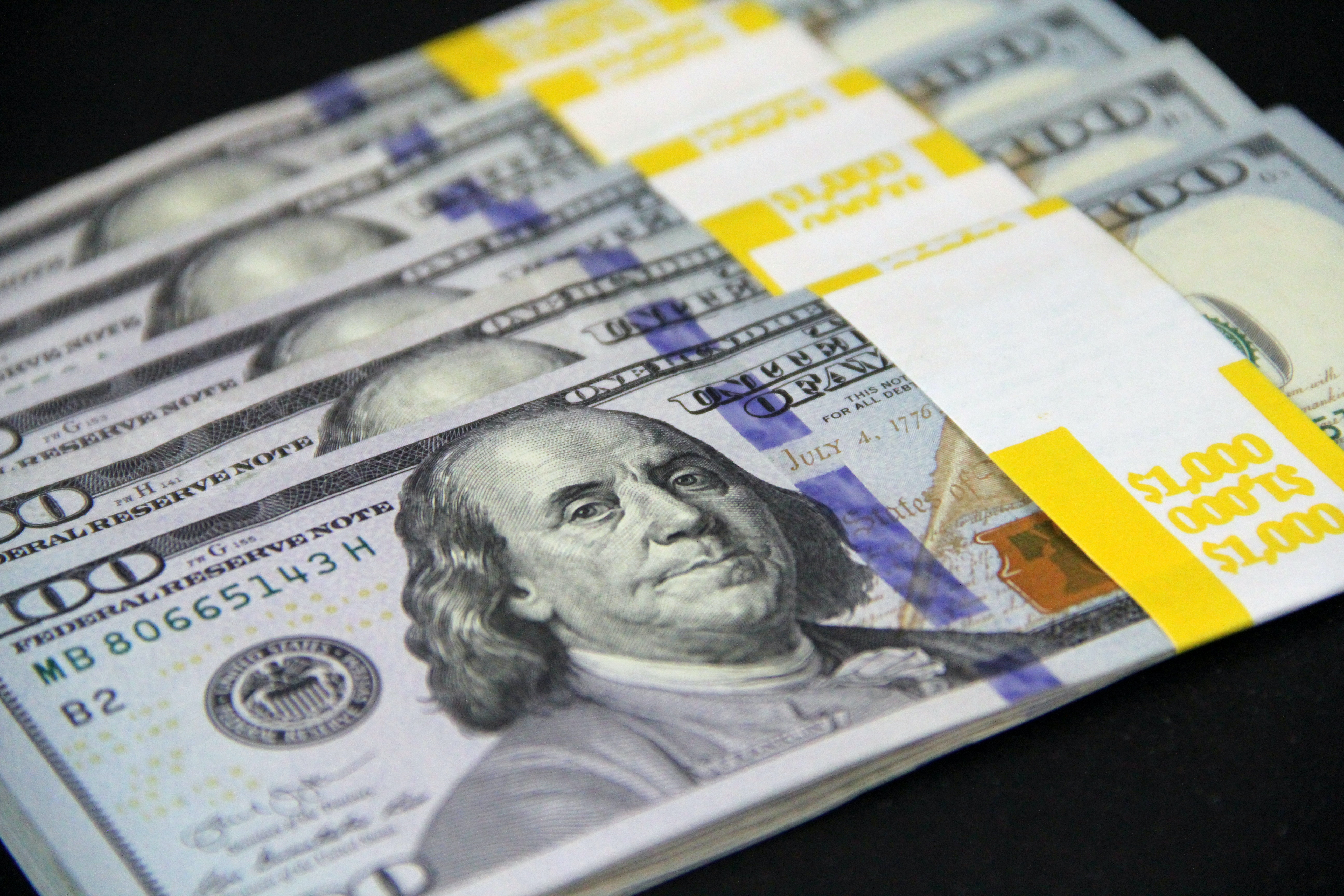USD to VND Exchange Rate: Impact on Prices, Banking, Remittances, and Vietnam’s Currency Future
GPT_Global - 2025-11-01 01:00:04.0 71
How does the USD to VND rate impact the cost of goods and services in Vietnam?
The exchange rate between the US Dollar (USD) and the Vietnamese Dong (VND) plays a crucial role in the cost of goods and services in Vietnam. A strong USD means that foreign products, especially imported goods, may become more expensive for Vietnamese consumers. When the VND weakens against the USD, the cost of imported products rises, leading to an increase in prices across various sectors, including electronics, vehicles, and luxury goods.
Conversely, when the VND strengthens against the USD, the cost of these imported items may decrease, offering consumers a reprieve from rising prices. The impact of the exchange rate is not limited to imported goods; it also affects the cost of services in Vietnam, particularly those linked to global markets, such as tourism, international education, and foreign investments.
For businesses in the remittance industry, fluctuations in the USD to VND exchange rate are important, as they influence the amount of money received by recipients in Vietnam. A stronger USD means that remittance recipients will receive more in VND, providing a higher standard of living for families. Understanding how the USD to VND exchange rate works is essential for managing financial decisions and ensuring the best outcomes for remittance transfers.

What historical events caused significant changes in the USD to VND exchange rate?
Understanding the fluctuations in the USD to VND exchange rate is essential for anyone involved in remittance business. Historical events have played a significant role in shaping the value of the US Dollar (USD) against the Vietnamese Dong (VND). These changes affect the remittance industry by determining the cost and value of sending money internationally.
One of the most notable events that caused a significant shift in the USD/VND exchange rate was the Vietnam War. Following the war, Vietnam's economy was left in shambles, leading to a period of hyperinflation and a devaluation of the Vietnamese Dong. As a result, the USD became much stronger against the VND.
Another key moment came in the 1980s when Vietnam adopted economic reforms under the Đổi Mới policy. These reforms opened up the economy to foreign investments and resulted in gradual improvements to the country’s financial stability. Over time, the USD/VND exchange rate became more stable.
More recently, the global financial crises and trade relations between the US and Vietnam have continued to influence the exchange rate. Understanding these historical shifts helps businesses in the remittance sector manage risks and provide better services to clients transferring money between the US and Vietnam.
How can I use a credit card in Vietnam and avoid poor exchange rates for USD to VND?
When traveling or conducting business in Vietnam, using a credit card can be convenient, but you should be cautious of poor exchange rates when converting USD to VND. Many credit card providers charge foreign transaction fees and offer unfavorable exchange rates, which can add up quickly. Here are some tips to avoid these issues and get the best value for your money.
Firstly, consider using a credit card that offers no foreign transaction fees. Many credit card companies now provide options designed for international use, which can save you from additional charges. Additionally, make sure to pay in VND when offered the option to pay in your home currency (USD), as paying in VND typically gives you a better exchange rate.
Another option is to use a remittance service to transfer money directly to your bank account or an e-wallet in Vietnam. By using remittance services with competitive exchange rates, you can avoid the high conversion fees typically associated with credit card payments. This method can also be more secure and cost-effective in the long run.
By using these strategies, you can avoid poor exchange rates and maximize the value of your spending in Vietnam.
What is the role of the Vietnamese central bank in regulating the exchange rate for USD?
The Vietnamese central bank, known as the State Bank of Vietnam (SBV), plays a crucial role in regulating the exchange rate for the US Dollar (USD). As the official authority overseeing the nation’s monetary policy, the SBV ensures that the exchange rate remains stable and reflects economic fundamentals. The bank does this by implementing policies that influence supply and demand for foreign currencies, including the USD.
In the context of the remittance business, these exchange rate regulations are essential. The SBV’s management of the VND/USD rate directly affects remittance flows into Vietnam, as senders and recipients are impacted by fluctuations in the exchange rate. When the exchange rate is favorable, the value of remittances increases, benefiting families and individuals receiving funds.
Moreover, the SBV also adjusts interest rates and intervenes in the foreign exchange market when needed, helping to prevent excessive volatility. For remittance businesses, understanding these policies is key to offering competitive rates and ensuring stability for customers. Proper exchange rate management by the SBV ultimately helps maintain a thriving remittance market in Vietnam.
How do remittances from Vietnamese workers abroad affect the exchange rate of the dong?
Remittances sent by Vietnamese workers abroad play a significant role in influencing the exchange rate of the Vietnamese dong. These remittances often come from countries with high concentrations of Vietnamese labor, such as the U.S., Japan, and South Korea. As workers send money back to their families, the inflow of foreign currency increases the demand for the dong.
When the Vietnamese government receives remittance inflows, it often exchanges the foreign currencies for dong, boosting the local money supply. This additional demand can strengthen the dong against foreign currencies, especially if remittance levels are high. Conversely, a decline in remittance flow can lead to depreciation of the dong.
The Vietnamese economy benefits from this foreign currency influx, which helps stabilize domestic inflation and supports economic growth. As remittances continue to be a key source of income for millions of families, their impact on the dong's exchange rate remains significant.
For remittance businesses, understanding these dynamics is essential for offering better services to customers, ensuring that funds are transferred efficiently and cost-effectively while responding to fluctuations in the exchange rate.
What are the pros and cons of holding Vietnamese dong versus US dollars for long-term savings?
```htmlWhen deciding between holding Vietnamese dong (VND) or US dollars (USD) for long-term savings, there are several factors to consider. The Vietnamese dong is the local currency, and it may offer a higher interest rate on savings in Vietnam. However, inflation and currency devaluation can erode the value of VND over time. For people with international business interests, VND can be a riskier choice due to its potential fluctuations against global currencies.
On the other hand, holding US dollars is often seen as a more stable option. The USD is widely recognized as a global reserve currency and is less prone to inflation and devaluation compared to emerging market currencies. For individuals in Vietnam or other countries with fluctuating currencies, keeping savings in USD can protect against local currency risk and offer greater financial security.
However, holding US dollars may also come with its own downsides, such as limited interest rates and potential difficulty accessing USD in the local economy. In countries where remittance businesses are essential, remitting USD can have its own exchange and transfer fees, which can affect overall savings. Weighing these pros and cons carefully can help you make the best decision for your long-term financial goals.
```Are there any apps or tools that provide real-time USD to VND exchange rates?
In today's fast-paced world, remittance businesses require accurate and timely exchange rates to offer the best services to their customers. One critical aspect is tracking the USD to VND exchange rate in real time. With fluctuating currency values, it is essential for businesses to use reliable apps and tools to stay up-to-date and make informed decisions.
There are several apps and tools available that provide real-time USD to VND exchange rates. Popular options include XE, OANDA, and Google Finance. These tools are known for their accuracy and ease of use, providing users with up-to-the-minute exchange rates to ensure they are always in the know. For businesses involved in remittance services, using these tools can help streamline transactions and reduce the risk of losing out on favorable rates.
Additionally, financial institutions and remittance services often integrate real-time exchange rate feeds into their platforms to offer transparent pricing to customers. This helps in maintaining trust and ensuring that customers are receiving the best possible deal when sending or receiving money across borders.
By utilizing real-time exchange rate tools, remittance businesses can enhance their services, improve customer satisfaction, and ultimately stay ahead in a competitive market.
Can the Vietnamese dong ever replace the US dollar as the primary currency in Vietnam?
The Vietnamese dong (VND) has been the official currency of Vietnam for decades, but a common question among remittance businesses is whether it could ever replace the US dollar as the primary currency in the country. Currently, the US dollar remains a popular choice for transactions, especially in international remittances, given Vietnam's strong economic ties to the global market.
Despite the dominance of the US dollar, Vietnam's government has made strides to strengthen the Vietnamese dong. The government has implemented policies aimed at stabilizing the VND and reducing reliance on foreign currencies. However, this shift faces significant challenges, such as inflation and global economic volatility, which affect the stability of the dong.
For remittance businesses, the future of currency in Vietnam is essential. If the dong becomes more stable and the economy grows, the use of the VND in remittance transactions could rise. This would also impact exchange rates and the demand for dollar-based remittances. As a result, remittance services need to keep an eye on these economic trends to offer competitive services to their clients.
About Panda Remit
Panda Remit is committed to providing global users with more convenient, safe, reliable, and affordable online cross-border remittance services。
International remittance services from more than 30 countries/regions around the world are now available: including Japan, Hong Kong, Europe, the United States, Australia, and other markets, and are recognized and trusted by millions of users around the world.
Visit Panda Remit Official Website or Download PandaRemit App, to learn more about remittance info.

